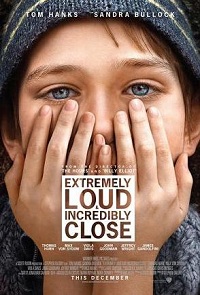
Do you know what autism looks like?
I can’t say that I do.
After teaching in a public high school for seven years, I can maybe say I can spot signs of kiddos who have problems with social cues. I can identify a student who might exhibit signs of what might be autism. I know when to refer a student to a professional who can provide more support, if support is necessary. However, if simply passing someone on the street, there is generally no way to tell if a person is autistic, let alone on the Autism Spectrum.
And what does that really mean, anyway?
Let me back up. A few weeks ago, I read about a mother in Kentucky who found her son (who has autism) imprisoned in a gym bag, in the hallway, outside of his classroom. Allegedly, the boy had behaved poorly and this bag was being used as “therapy.” After my initial shock, horror, rants about the state of public schools, and rants about the lack of appropriate training for special-education teachers, I realized: this could be any kid with autism, in any scenario, in any part of the country. It is no secret that autism rates are rising (WHY they are rising is another post for another day), and it is imperative for adults, particularly those in public service, understand WHAT autism is and how to recognize it so that unnecessary use of force, as was the case in Kentucky, can be avoided.
One Experience
You might be thinking, “Well, if someone is using force, it must be necessary or warranted in some fashion.” Let me describe a scenario to you, one I experienced myself involving a student, who I knew, and whose family I knew, and who had been in my class. We’ll call him Max (not his real name). Max has Asperger Syndrome.
Max showed up in my classroom on the first day of school, followed directions, and seemed like any other nervous, withdrawn ninth-grader who might be trying to maintain his “cool.” I knew, from the very limited info I had received about each student, that Max has Asperger’s, and thankfully, I am married to a man who is not only a great special-educator, but really knows his shit. Hubs gave me a quick run-down of things I might see (or not!). (I should mention here that I consulted the special educator assigned as my teaching partner and the man could not only tell me nothing about students with Asperger’s, but he had no idea there *was* a student with Asperger’s in our class. Another post. Another day.) Max’s difficulties with social situations became really obvious when the students were asked to form small groups and interview each other (with pre-written questions). Instead of responding in an ordinary fashion, Max liked to “freak everyone out” by answering the questions with weird responses in a monotone, emotionless fashion which is typical of Asperger’s.
Girl Student:”Do you like to read?”
Max (straight-faced): “No, I mainly like to sit in my room and sharpen my knife.”
Girl Student: …
And so the school year went this way, with the other students realizing Max was “different” but following my cues on how to perceive him.
Let’s fast-forward to the next year, when Max is a year older and no longer in my class. Max has now earned a reputation for being “that weird kid” who “threatens” people. I never paid these claims any mind and it bothered me when other teachers would jump on board with the drama that can be easily stirred by teenagers. I took Max’s actions as simple impulsiveness: most people can recognize that telling someone you’d like to blow up the school could get you into trouble. Max just knew it shocked the hell out of people and that made him cool, in his mind. He got attention.
I entered the school’s library to return some books one day and found Max standing apart from the majority of students, staring down one guy, and steadily holding up the middle finger. I walked up to Max, said, “Yo. What are you doing?”
He didn’t reply. He just looked back at me and stared, not unlike how psychotic killers are depicted on television. Now, this could throw someone. This could seem creepy. But this was Max, and I knew him, and his staring tactic was a normal response from him. I simply said, “Don’t do that ANY.MORE. It’s not cool and I will have to write you up. Stop it.” He continued to stare at me until I said, “You can keep staring, but I’m not going to go away.” He finally just looked away and still said nothing. I took this as a sign that he was, at least, done giving the middle finger for awhile and I walked out of the library. (You might be wondering where Max’s teacher was during this exchange; I don’t know.) This was probably not the best way to handle the situation but it is what I did and it avoided an unnecessary scene and punishment.
Public’s View
Would every person have responded the way I did to Max’s middle finger? Absolutely not. Some of that is due to attitudes and some of that is due to lack of understanding of teenagers. Think about how that scenario could have gone: Max gives The Finger, teacher sees it, calls him out on it, tries to get him to respond, he just stares, teacher gets angry, Max gets dragged to the office, in which case he may/may not resist force, the other students are now involved, everyone is crazy, the learning environment is disrupted… Now place Max on a city street, and instead of a student, he is giving The Finger to a police officer. The situation now moves from “dumb teenager shit” to “potentially arrestable offense” depending upon the officer, no?

The ignorance surrounding autism doesn’t end with public service. Read this article on the website, Autism Key, about how critics of Extremely Loud and Incredibly Close, a film based on a novel of the same title, reacted to the protagonist–a child with Asperger’s Syndrome. The critics’ comments are horribly ignorant. Scroll further down to read the reactions of parents of children with autism.
Awareness
In doing some research, I was very pleased to find a site called Autism Risk & Safety Management, run by Dennis Debbaudt and Brian Herritt, two men with law-enforcement training and experience with individuals who have autism. These gentlemen provide training for law enforcement officials in order to expand understanding of Autism. Their site provides “autism training and resources for law enforcement, emergency first responders, parents, educators, care providers, and the autism community.” I hope you’ll check it out and pass it along.
As education about Autism increases, more public service individuals are prepared appropriately for how to handle situations with persons with autism. I am saddened to say, though, that a friend of ours, specifically-trained and the best man for the position, recently lost his job as a special-education teacher working with students with autism, due to budget cuts. He wrote about this unfortunate phenomenon in an article in the Huffington Post. The sad reality is that, in a time of economic crisis, school districts are firing the newest, perhaps better-equipped teachers for kids with special needs, in favor of those with seniority.
And so, it is imperative that we are all aware. Autism affects 1 in 110 children, who won’t always be children. I encourage you to learn more, to understand more, to share more information. I don’t pretend to be an expert–I’ll be reading more, too. Here are some excellent resources to continue the journey:
I’m going to follow the story about the boy in Kentucky and I hope that, eventually, something is done to reprimand the school district and teacher(s) involved with such inappropriate actions. At the very least, I hope the district provides better training for its employees. Mostly, I hope the experience hasn’t permanently injured a child who didn’t deserve such treatment.
I invite you to share your experiences in the comments. Do you have a child with autism? What are your thoughts about his/her future?–Do you have a blog post you’d like to share?– Do you have other important links that I should add to the list above?
Thanks for joining me for Off-Topic Tuesday! Never miss a post–get email updates.


This is a great article. Of course, I love any which raises awareness of Autism. My son was diagnosed with PDD-NOS (pervasive developmental disorder not otherwise specified) at the age of two. He had only 4 words (Mama, Daddy, Kitty, and More…none of which was pronounced 100% correctly). Through tons of therapy he has come into the speaking world and 10 months after starting therapy he was using full sentences and had lots of words! Granted, still not fully at his age level- has issues with why, what, who, etc questions (asked of him or him asking). So much progress, but so much work yet to be done.
Sometimes it is hard to have dreams for him as the future is so uncertain and at other times I have all the dreams in the world. Even kids his age (3 years old) realize he is different and have pointed it out to me (“why does he do that?” “he’s different”) and those are the days my dreams for him seem lost.
I just wish more people would take the time to be aware of what Autism entails. At least a little bit, since it really does entail so much: anxiety, perseverence (fixating on objects- like spinning objects, or if a light is on or off), stuck in routines (always has to be a certain way- and not just in the three year old way- takes it to the next level), socially awkward, speach delays or non verbal, etc etc
One quote has stuck with me: “if you met one child with Autism…you met one child with Autism.” And this is so true.
May you all learn lots from articles such as this, and other websites. Keep researching because you will come accross a child or an adult in your lifetime who is effected by this disorder. And most certainly your children will come accross other children with Autism. Please be ready to explain to them and help them feel compassion and help them to reach out. That is all I can hope for my son, as I know he will not always reach out to others.
I can just hope he doesn’t get lost along the way and that others will love him as much as his father and I do.
Love, peace, and understanding to you all.
Chrissy,
Thank you for your honest and heartfelt comments. The quote you referenced had me nodding my head; it makes perfect sense. To lump persons with autism into a single description would be like combining persons without autism into a single description. I am so pleased to hear that your son has made great strides, but moreover, that he has the support of understanding parents. The “Max” I mention in my piece has a hell of an advocate for him (his “stepmom,” though she is definitely his mother), and she is the person who taught me the most about students with special needs in my classroom. I will certainly continue to read, and learn, and, hopefully, teach others 🙂 Even this brief exchange has opened my eyes a little more.
I just want to tell you I am glad there are people such as yourself out in the world, especially the teaching world.
You mention advocate, and I find that the children who succeed have strong advocates behind them (parents, therapists, teachers, etc) who will fight for them and get them all that they can to assist in their learning. Being one, especially on the parent side, is not always easy as it goes beyond a professional relationship into the very personal.
I am quite lucky to be where I am as we have one of the top two research hospitals for Autism (Strong Hospital, via the Kirsch Center) and we have wonderful resources for special education (especially compared to other states/and even other counties in NY). We are hard pressed to ever move away from where we are as we have gotten our son much of what he needs without having to fight the school district for it and not having to deal with insurance (as the state covers his therapy). I just wish other states/counties were just the same. Since my son received early intervention from the time he was 2 years old he will be much further ahead than if they waited to intervene and cover things via the state until he was 5 years old. The big learning curve is gone and you have to do twice the work (at least) to get the child to grade level/peer level socially and academically.
Keep on keeping on and best of luck to Max, his Mom, and the rest of his family 🙂 Also best of luck to you in your classroom!
I wanted to clarify that I am no longer teaching in a classroom but thank you for the nice compliments 🙂